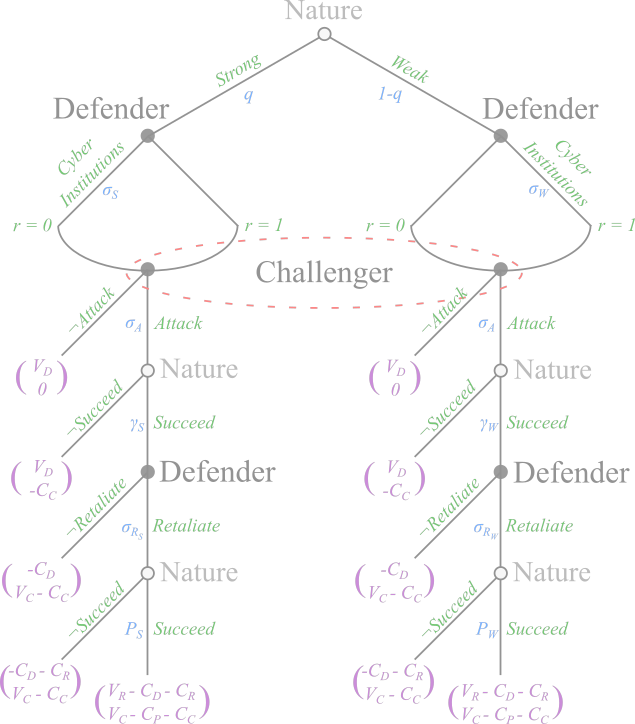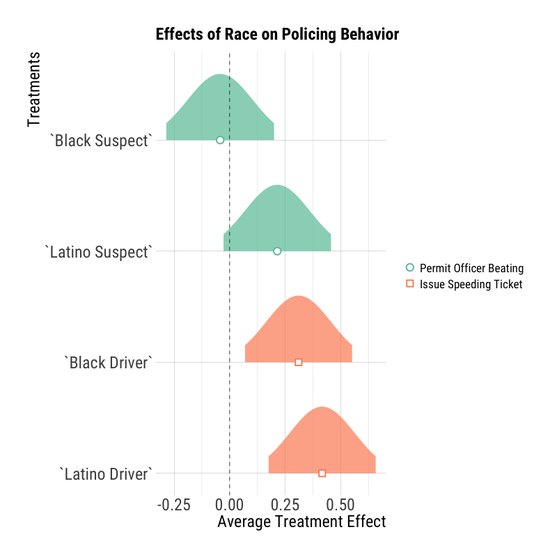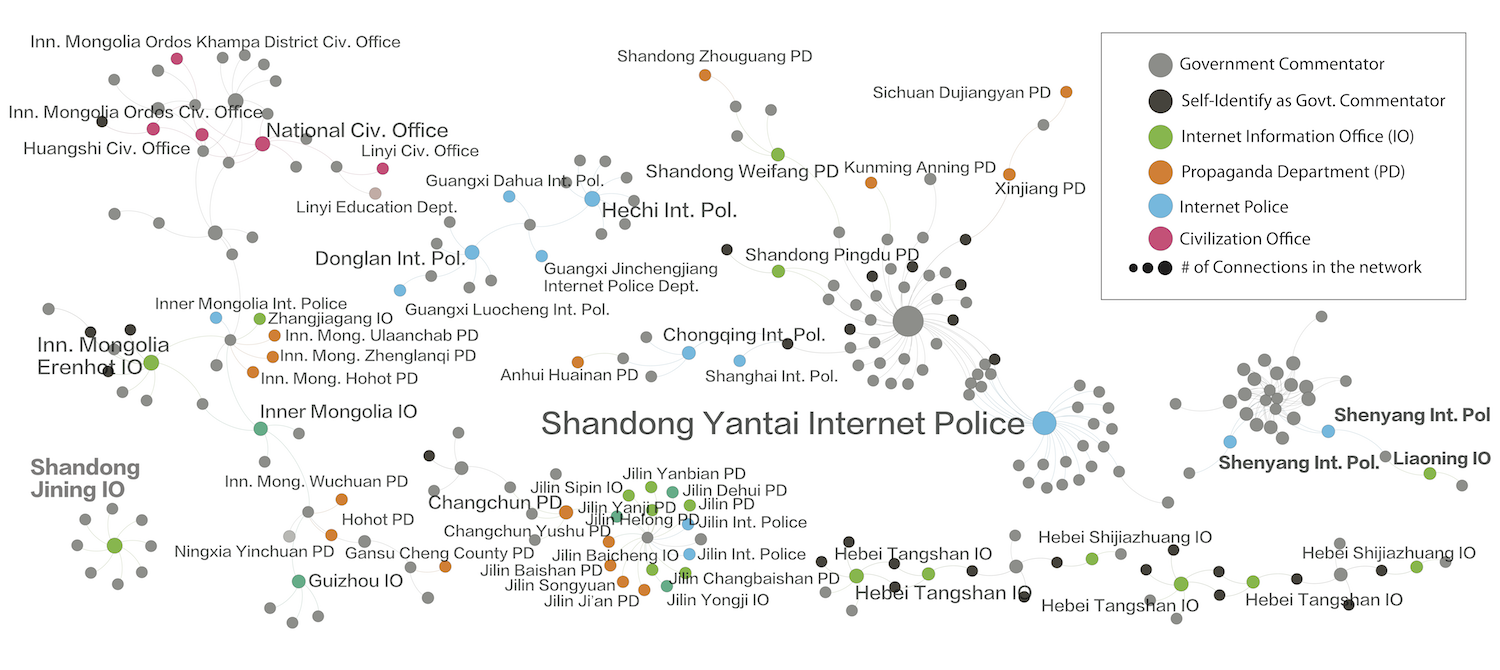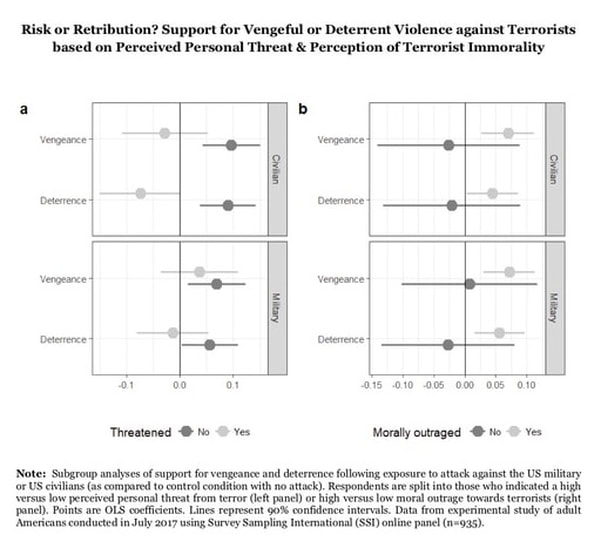We are quite proud of the graduate students graduating from our program and on this page we wish to highlight the ones that recently came out on the market. This is mostly for them but it is also for us as well as we are honored to be associated with them as they continue their careers in the academy and beyond.
CPRD Students on the Market in 2023-2024 - 1 student employed
Hojung Joo goes to Harvard University!
My name is Hojung Joo, and I am a Ph.D. candidate in Political Science at the University of Michigan. My research interests lie at the intersection of international relations, comparative politics, and Korean politics. I study wars, violence, state-building, and the legacy of colonial rule, with an empirical focus on Korea. In my work, I demonstrate how war-making contributes to state-making by allowing states to define and eliminate potential threats to a vulnerable regime while establishing a long-run base of support by mobilizing those who participated in the war effort. I also evaluate how past and present wars shape policymaking processes and how such effects evolve with time.
My dissertation project examines the relationship between prewar resistance against the state and civilian killings during the Korean War. To test the relationship between prewar resistance against state authorities and civilian killings, I constructed an original dataset on civilian killings by South Korean and North Korean armed actors during the Korean War. I also utilize data on various protest activities during Japanese colonial rule and vectorized & geocoded data on major battle locations during the war. Utilizing regression models, I find a positive and significant correlation between anti-colonial protests of the March First Movement (1919) and civilian killings by South Korean armed actors. The Truth and Reconciliation Commission reports and archival records suggest that South Korean local policemen, who retained their positions since colonial rule, acted as an active informant against their neighbors during South Korean occupation.
My dissertation project examines the relationship between prewar resistance against the state and civilian killings during the Korean War. To test the relationship between prewar resistance against state authorities and civilian killings, I constructed an original dataset on civilian killings by South Korean and North Korean armed actors during the Korean War. I also utilize data on various protest activities during Japanese colonial rule and vectorized & geocoded data on major battle locations during the war. Utilizing regression models, I find a positive and significant correlation between anti-colonial protests of the March First Movement (1919) and civilian killings by South Korean armed actors. The Truth and Reconciliation Commission reports and archival records suggest that South Korean local policemen, who retained their positions since colonial rule, acted as an active informant against their neighbors during South Korean occupation.
Link to CV:
https://sites.lsa.umich.edu/hojungjoo/wp-content/uploads/sites/559/2023/08/Joo_CV_230813.pdf
Link to Website:
https://sites.lsa.umich.edu/hojungjoo/
https://sites.lsa.umich.edu/hojungjoo/wp-content/uploads/sites/559/2023/08/Joo_CV_230813.pdf
Link to Website:
https://sites.lsa.umich.edu/hojungjoo/
CPRD Students on the Market in 2022-2023 - 2 students employed
Htet Thiha Zaw goes to the International Rescue Committee!
My name is Thiha Zaw and I am now working as an Education Researcher at International Rescue Committee Airbel Impact Lab. I received my Ph.D. in Political Science from the University of Michigan – Ann Arbor in August 2023. My research interests lie in comparative political economy and conflict studies, with expertise in Southeast Asia and colonial contexts.
My research examines the key conditions that historically influenced state development, specifically how states allocate their resources for physical coercion and education provision under significant and chronic fiscal constraints. I do so within the historical context of colonial states (with a focus on British Burma), where such constraints were especially prevalent when compared to the contemporaneous European states. Through my research, I show that pre-colonial indigenous institutions, which were fundamental in shaping state-society relations, explain the spatial and temporal patterns of state violence and state involvement in education in colonial states. My policy research, including my work at the International Rescue Committee, investigates the impact of state policy on post-independence education outcomes in the Global South.
I am also developing a book project investigating the underrepresented yet important role indigenous society and its relationship with the state played in the long-run development of colonial and post-independence contexts, focusing on Burma/Myanmar.
My research is published or forthcoming at Comparative Political Studies, Comparative Education Review, International Journal of Educational Development, and International Journal of Educational Research, among other venues.
My research examines the key conditions that historically influenced state development, specifically how states allocate their resources for physical coercion and education provision under significant and chronic fiscal constraints. I do so within the historical context of colonial states (with a focus on British Burma), where such constraints were especially prevalent when compared to the contemporaneous European states. Through my research, I show that pre-colonial indigenous institutions, which were fundamental in shaping state-society relations, explain the spatial and temporal patterns of state violence and state involvement in education in colonial states. My policy research, including my work at the International Rescue Committee, investigates the impact of state policy on post-independence education outcomes in the Global South.
I am also developing a book project investigating the underrepresented yet important role indigenous society and its relationship with the state played in the long-run development of colonial and post-independence contexts, focusing on Burma/Myanmar.
My research is published or forthcoming at Comparative Political Studies, Comparative Education Review, International Journal of Educational Development, and International Journal of Educational Research, among other venues.
Link to CV:
https://drive.google.com/file/d/1SJakcJ3dJZRPJpABrODOAhwku7V9K8Qp/view
Link to Website:
https://sites.lsa.umich.edu/htzaw/
https://drive.google.com/file/d/1SJakcJ3dJZRPJpABrODOAhwku7V9K8Qp/view
Link to Website:
https://sites.lsa.umich.edu/htzaw/
Tim Jones goes to the Naval Postgraduate School!
My name is Timothy Jones, and I am currently the Donald R. Beall Defense Postdoctoral Fellow in the Department of Defense Analysis at the Naval Postgraduate School (NPS) in Monterey, California.
I received my Ph.D. in Political Science from the University of Michigan – Ann Arbor in August 2023. My research interests lie in international relations and conflict studies, with expertise in the Middle East, East Africa, and Central Asia.
My research agenda encompasses issues of national security and foreign policy with an emphasis on how and why conflicts evolve, how the allocation of resources and adoption of different countermeasures or institutions can best establish political order, and how global competition over contested areas exacerbates violence. By combining practical experience with rigorous academic inquiry, my aim is to inform policy decisions, enhance conflict resolution strategies, and ultimately contribute to the promotion of global peace and security.
In my post-dissertation work, I develop and test a theory for how resource spending in conflicts and the sequencing of countermeasures can work in concert to quell violence and build order. I expect territorial control to be a precondition for wartime aid to be effective in reducing recurrence of militant violence in civil war. This work tests the sequencing assumption that is built into the U.S. military's shape-clear-hold-build doctrine, but not always followed in practice.
This effort also tests the assumption that wartime aid can bolster cooperation and intelligence sharing from the local population to the counterinsurgent and hinder such flows to rebel groups by delving deeper into the evolution of the quality and nature of violence perpetrated by belligerents. The implications of this research are important for conflict management and peacebuilding discourse.by helping differentiate between successful and unsuccessful counterinsurgency practices and enriching our comprehension of the factors underlying the varying outcomes of aid initiatives.
I received my Ph.D. in Political Science from the University of Michigan – Ann Arbor in August 2023. My research interests lie in international relations and conflict studies, with expertise in the Middle East, East Africa, and Central Asia.
My research agenda encompasses issues of national security and foreign policy with an emphasis on how and why conflicts evolve, how the allocation of resources and adoption of different countermeasures or institutions can best establish political order, and how global competition over contested areas exacerbates violence. By combining practical experience with rigorous academic inquiry, my aim is to inform policy decisions, enhance conflict resolution strategies, and ultimately contribute to the promotion of global peace and security.
In my post-dissertation work, I develop and test a theory for how resource spending in conflicts and the sequencing of countermeasures can work in concert to quell violence and build order. I expect territorial control to be a precondition for wartime aid to be effective in reducing recurrence of militant violence in civil war. This work tests the sequencing assumption that is built into the U.S. military's shape-clear-hold-build doctrine, but not always followed in practice.
This effort also tests the assumption that wartime aid can bolster cooperation and intelligence sharing from the local population to the counterinsurgent and hinder such flows to rebel groups by delving deeper into the evolution of the quality and nature of violence perpetrated by belligerents. The implications of this research are important for conflict management and peacebuilding discourse.by helping differentiate between successful and unsuccessful counterinsurgency practices and enriching our comprehension of the factors underlying the varying outcomes of aid initiatives.
Link to CV:
https://timothyleejones.github.io/files/Curriculum_Vitae_short.pdf
Link to Website:
https://timothyleejones.github.io/
https://timothyleejones.github.io/files/Curriculum_Vitae_short.pdf
Link to Website:
https://timothyleejones.github.io/
CPRD Students on the Market in 2021-2022
CPRD Students on the Market in 2020-2021
CPRD Students on the Market in 2019-2020 - 1 student employed
Nadiya Kostyuk goes to Georgia Institute of Technology!
My name is Nadiya Kostyuk and my research interests lie at the intersection of international conflict and technology. Using a multi-method-approach that includes formal theory, experiments, and large-N statistical analysis, I examine: how domestic and international factors shape a state’s organizations, policies, and doctrines that deal with cybersecurity; the role the digital front plays in modern warfare; and how technology affects political conflict and violence. My research has been published (or is forthcoming) in the Journal of Peace Research, Journal of Conflict Resolution, Journal of Strategic Studies, Institute of Electrical and Electronics Engineers (IEEE), Cyber Defense Review, and several edited volumes and general-audience publications. My research has been supported by the Belfer Center for Science and International Technology at Harvard's Kennedy School, the Department of Computer Science and the Fletcher School of Law and Diplomacy at Tufts University, and the Cybersecurity, Internet Governance, Digital Economy, and Civic Tech Initiative at Columbia University's School of International and Public Affairs.
Most political science research in cybersecurity has focused on cyber operations; I have instead looked at cyber organizational and doctrinal changes and asked how states make decisions to create different types of cyber institutions and what impact these institutions have on the nation's security. My dissertation, Causes and Effects of Cyber Institutions: Intricate interdependencies of domestic and international politics, shows that in developing cyber capabilities, nations emulate their allies and adversaries but that the institutions created often do not fulfill actual needs in cybersecurity; this has important national-security, economic, and peace implications. I also showed that while the development of such cyber institutions can sometimes deter adversaries, the public worries about the use of capabilities to conduct domestic surveillance and censorship. Thus the development of cyber institutions often occur at cross purposes with a nation's actual needs. These findings have important policy implications for how governments should incorporate new technology into their strategic military planning and broadens our theoretical, empirical, and practical understanding of how countries strategically use their cyber capabilities to achieve their domestic and foreign policy objectives.
Most political science research in cybersecurity has focused on cyber operations; I have instead looked at cyber organizational and doctrinal changes and asked how states make decisions to create different types of cyber institutions and what impact these institutions have on the nation's security. My dissertation, Causes and Effects of Cyber Institutions: Intricate interdependencies of domestic and international politics, shows that in developing cyber capabilities, nations emulate their allies and adversaries but that the institutions created often do not fulfill actual needs in cybersecurity; this has important national-security, economic, and peace implications. I also showed that while the development of such cyber institutions can sometimes deter adversaries, the public worries about the use of capabilities to conduct domestic surveillance and censorship. Thus the development of cyber institutions often occur at cross purposes with a nation's actual needs. These findings have important policy implications for how governments should incorporate new technology into their strategic military planning and broadens our theoretical, empirical, and practical understanding of how countries strategically use their cyber capabilities to achieve their domestic and foreign policy objectives.
The figure above illustrates how cyber institutions -- defined as publicly observable efforts aimed at signaling a country's level of cyber offensive and defensive capability -- can deter strategic cyber operations (e.g., election interference, attacks against critical infrastructure objects) by the country's adversary. Even though deterrence by prevention and the threat of punishment only works in limited cases, states tend to sub-optimally over-invest resources in these institutions. In particular, weak cyber states tend to over-invest to convince strong cyber adversaries that they are strong, whereas strong cyber states over-invest so that adversaries do not believe that they are weak states pretending to be strong.
Link to CV:
http://www-personal.umich.edu/~nadiya/CV.pdf
Link to Website:
http://www-personal.umich.edu/~nadiya/index.html
http://www-personal.umich.edu/~nadiya/CV.pdf
Link to Website:
http://www-personal.umich.edu/~nadiya/index.html
CPRD Students on the Market in 2018-2019 - 5 students up and 5 students employed!
Charles Crabtree goes to Dartmouth University!
My name is Charles Crabtree. My substantive research focuses on measuring and examining various aspects of repression and discrimination in comparative, American, and international politics. Methodologically, I am interested in research design, machine learning, and experiments. I have published work on these topics in the British Journal of Political Science, Conflict Management and Peace Science, Electoral Studies, International Studies Quarterly, the Journal of Experimental Political Science, the Journal of Peace Research, Political Research Quarterly, Political Analysis, Political Science Research and Methods, PS: Political Science & Politics, Research & Politics, State Politics & Policy Quarterly, and in several other interdisciplinary, sociology, and psychology journals.
My general interest in repression and discrimination has lead to my current research agenda, which centers on the politics of policing. In a series of papers, I examine discrimination in police recruitment and oversight, the political effects of policing, and the effectiveness of domestic security strategies. My desire to better understand the politics of policing motivates my dissertation, a book-length project entitled Unequal Response: A Comparative Study of Police Violence. At the core of this project is a novel theory about public-led discriminatory policing informed, in part, by interviews conducted with domestic security agents. To test this theory, I use a variety of approaches including machine learning, audit and survey experiments, participant observation, and interviews with domestic security agents. My theory and results call into question existing policy interventions aimed at reducing discrimination in policing and contributes to the new interdisciplinary literature on comparative policing that is emerging in political science, sociology, economics, and criminology.
My general interest in repression and discrimination has lead to my current research agenda, which centers on the politics of policing. In a series of papers, I examine discrimination in police recruitment and oversight, the political effects of policing, and the effectiveness of domestic security strategies. My desire to better understand the politics of policing motivates my dissertation, a book-length project entitled Unequal Response: A Comparative Study of Police Violence. At the core of this project is a novel theory about public-led discriminatory policing informed, in part, by interviews conducted with domestic security agents. To test this theory, I use a variety of approaches including machine learning, audit and survey experiments, participant observation, and interviews with domestic security agents. My theory and results call into question existing policy interventions aimed at reducing discrimination in policing and contributes to the new interdisciplinary literature on comparative policing that is emerging in political science, sociology, economics, and criminology.
In a series of studies, I provide new experimental evidence of discrimination in the criminal justice system. This plot shows that American law enforcement administrators (i.e. police chiefs and sheriffs) discriminate against Blacks and Latinos in the context of a common citizen-police interaction - traffic stops. The vertical axis of the plot lists experimental treatments. The horizontal axis denotes the extent to which law enforcement administrators would endorse one of two policing actions: an officer beating a suspect and an officer issuing a speeding ticket. The outcome measures are standardized, so a change along the horizontal axis denotes a change in standard deviations.
Blake Miller goes to LSE!
My name is Blake Miller and I am a Political Science and Scientific Computing PhD candidate at the University of Michigan. I will be joining the Dartmouth Program on Quantitative Social Science as a Postdoctoral Fellow in Fall 2018. My work centers on how information is manipulated by political actors to mobilize, influence public opinion, and change political behavior. Much of my work makes use of statistical machine learning methods to analyze political texts. My dissertation explores the political economy of information control in authoritarian regimes, with a focus on the Chinese case. Specifically, my dissertation explores how the Chinese government leverages private companies to aid efforts to restrict access to information, engage in mass surveillance, and selectively repress political opponents.
Outside of my work on information control in China, I am developing new methods for analyzing text as data using supervised machine learning. In co-authored and single-authored work, I demonstrate that active learning approaches to text classification can reduce the time and money spent manually labeling text corpora and has built software tools to facilitate the use of these methods by social scientists. I am also currently working on a project to explore how moral and emotional framing in US news media can mobilize individuals to support violence against outgroups.
Outside of my work on information control in China, I am developing new methods for analyzing text as data using supervised machine learning. In co-authored and single-authored work, I demonstrate that active learning approaches to text classification can reduce the time and money spent manually labeling text corpora and has built software tools to facilitate the use of these methods by social scientists. I am also currently working on a project to explore how moral and emotional framing in US news media can mobilize individuals to support violence against outgroups.
The figure above is a network graph of Chinese government astroturfers and their predicted bureaucratic affiliation. Government astroturfers post propaganda messages disguised as ordinary citizens. These astroturfers and their bureaucratic affiliation are predicted using machine learning methods that leverage network and social metadata in a database of over 60 million Chinese news comments.
Link to CV:
http://www.blakeapm.com/static/resume/blake_miller_cv.pdf
Link to Website:
http://blakeapm.com
Jessica Sun Goes to Emory University!
Carly Wayne Goes to Washington University!
My name is Carly Wayne and I study international relations with a focus on war and conflict. Specifically, my research investigates the behavioral micro-foundations of political violence. My current projects examine the role of anger and vengeance in political reactions to militant threats, how disjointed decision-making units impact foreign policy formation, and the long-term political consequences of exposure to war and violence. This work is published or forthcoming at a number of journals, including Journal of Conflict Resolution, Journal of Peace Research, European Psychologist, Political Psychology, and Public Opinion Quarterly. My book, The Polythink Syndrome (with Alex Mintz), was awarded the 2016 Alexander George Book Award by the International Society of Political Psychology for best book in the field of political psychology. Though I explore broad cross-national trends in conflict, I also have a regional expertise in the Middle East and Israel-Palestine. My research crosses sub
field lines, adapting theories and tools from the
fields of American and Comparative Political Behavior to provide insight into how emotional and cognitive processes structure the behavior of both the mass public and political elites in conflict contexts.
In my dissertation work, Risk or Retribution: The Micro-foundations of State Responses to Terror, I interrogate the emotional mechanisms undergirding civilian populations' response to terror threats and how this constrains state policies and incentivizes militant tactics. I theorize that the moral outrage of citizens to terrorism is a crucial mechanism structuring militant group tactics and state counterterror programs. By constraining democratically elected leaders' policy options and encouraging retaliation, public outrage can indirectly fuel terrorism, leading weakened groups to increase their reliance on this easier tactic. To test this theory, I develop a series of four papers, combining experimental approaches with qualitative, formal, and empirical methods. Together, these papers contribute to a deeper understanding of the distinct micro-foundations driving state responses to terrorism, shedding light on key puzzles: why terrorism rarely leads to concessions, why governments seem to ‘overreact’ to terror threats, and why this retaliation may not succeed in reducing terrorism.
In my dissertation work, Risk or Retribution: The Micro-foundations of State Responses to Terror, I interrogate the emotional mechanisms undergirding civilian populations' response to terror threats and how this constrains state policies and incentivizes militant tactics. I theorize that the moral outrage of citizens to terrorism is a crucial mechanism structuring militant group tactics and state counterterror programs. By constraining democratically elected leaders' policy options and encouraging retaliation, public outrage can indirectly fuel terrorism, leading weakened groups to increase their reliance on this easier tactic. To test this theory, I develop a series of four papers, combining experimental approaches with qualitative, formal, and empirical methods. Together, these papers contribute to a deeper understanding of the distinct micro-foundations driving state responses to terrorism, shedding light on key puzzles: why terrorism rarely leads to concessions, why governments seem to ‘overreact’ to terror threats, and why this retaliation may not succeed in reducing terrorism.
As one example of my work, in a series of experimental studies, I find that subjects are more supportive of vengeance after exposure to a terrorist attack, not because they feel more threatened, but, rather, because they believe terrorists deserve it. Preferences for violence in the wake of militant violence thus appear to be driven by a desire for retribution rather than the goal of reducing terrorism in the future. This is shown in the figure below.
Link to CV:
https://drive.google.com/file/d/0B4H8rPzkMGIZbm5YQ3J5LVVUR3c/view?usp=sharing
Link to Website:
www.carlywayne.com
https://drive.google.com/file/d/0B4H8rPzkMGIZbm5YQ3J5LVVUR3c/view?usp=sharing
Link to Website:
www.carlywayne.com












